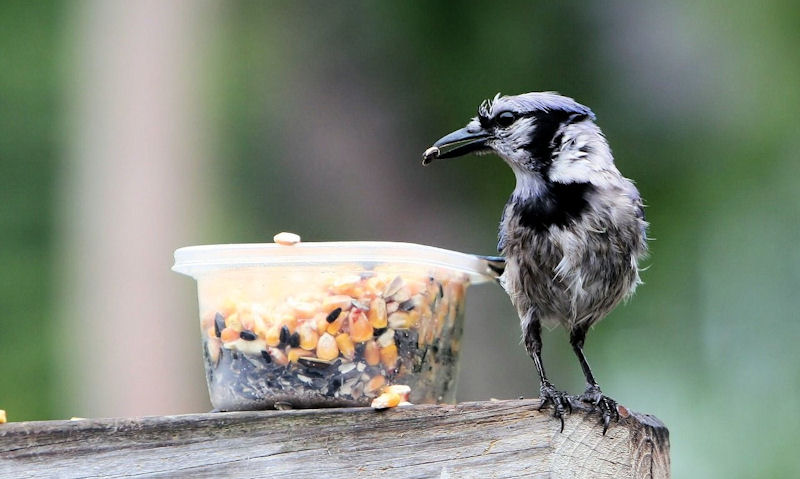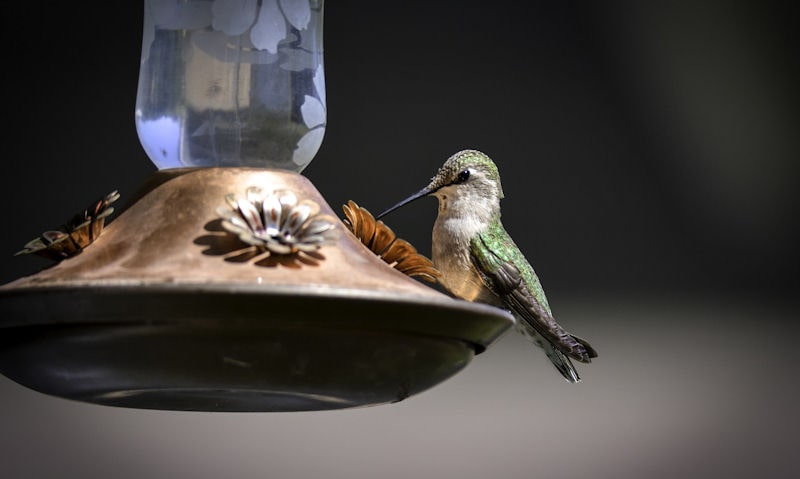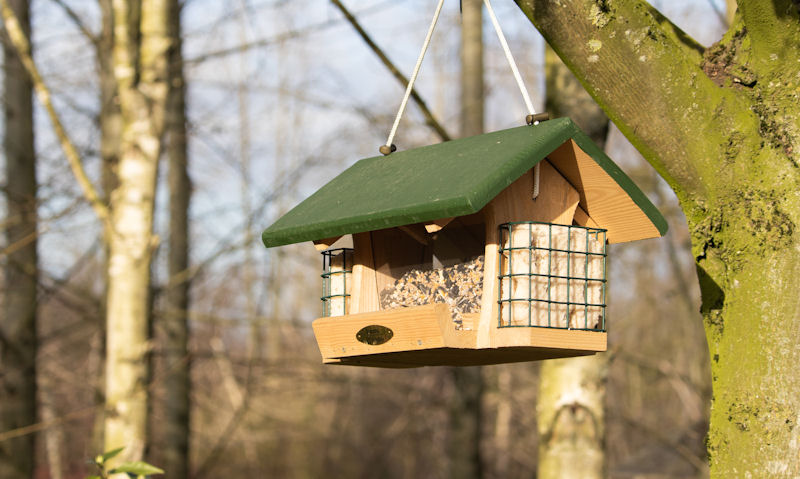Do birds like corn
Corn can be offered to wild birds in more than three ways, with dried corn kernels a better option, even if corn on the cob can be an attractive proposition.
Birds do like corn but it may not be many as you think. More wild birds eat cracked corn over corn provided either as sweetcorn, corn on the cob or plain corn kernels Doves will eat corn, and so can Blue Jays. But then wild birds out of the yard like turkeys, grouse, pheasants, quails, cranes and ducks like corn.
What you must remember about inferior wild bird seed mixes intended to be put in seed bird feeders, is that the ingredients usually contains cracked corn.
Cracked corn being dried, crushed up regular corn of which, now has a more bitty texture, that is regularly eaten by seed-eating birds at feeders. Of course millet, sunflower seeds, oats, wheat and additional fillers are added to seed mixes.
Corn can be offered to a number of wild birds in only corn kernel form, sweetcorn (with water removed), and corn on the cob.
Ideally you will want to strip corn off the cob to feed wild birds in a no nonsense way.
Corn on the cob can be cooked such as boiling it in a pan of water of which, you'll find it easier to remove the corn with a knife.
With straight up corn provided in the ways mentioned above, bird species like Northern Cardinals, Grosbeaks (i.e. Evening, Rose-breasted Grosbeaks), plus Blue Jays, Doves, and Crows like Ravens will be found to eat corn.
Similarly, a mix of backyard Turkeys, Grouse, Pheasants, Quails, Cranes and Ducks can be fed on corn kernels or cooked corn.
Now, for the wild birds who will eat cracked corn, these same species could in turn eat your sweetcorn, or corn on the cob.
Birds who eat corn will translate to mostly ground feeding birds who can be fed corn on the lawn, patio, or up on a deck railing. Put corn in a dish to keep it fresh or add corn into any prepared bird food mixes, on top of a platform bird feeder.
Never put corn cooked or prepared anyway in a regular bird feeder as its sure to quickly rot in a bird feeder not intended for regular human food.
Same goes for plain popped popcorn which is similar to cracked corn; popcorn kernels you can feed to wild birds are practically the same as corn in all its glory. In the end, both options are healthier and safer than feeding wild birds on bread or similar items.
Corn is eaten by few birds
In reality plain corn kernels, cooked corn on the cob or cold sweetcorn out of a can, wouldn't realistically be eaten by many wild birds in your yard.
You can depend on Doves to eat corn with the possibility of House Sparrows.
One species you may want to attract with corn - or at least corn-like bird feed - is Blue Jays who will eat corn offered either way, as Blue Jays will eat practically anything you throw their way.
As a rule, it will be largely seed-eating birds who will eat corn, and those same seed-eating birds will be ground feeders.
It may be possible you can then feed corn to a mix of wild birds who may extend to Dark-eyed Juncos, Indigo Buntings, and Cardinals. Not just ground feeders either as there's a chance you can attract Woodpeckers, Nuthatches, Song Sparrows and Purple Finches.
To be honest, if regular wild bird feed remains in proximity of the corn provided in any way, it will just be ignored for what wild birds will naturally foraged on in our yards.
Source of fiber
To keep your local wild life in ship-shape for the year at least, and when corn is eaten, it will sure contain plenty of dietary fiber.
Fiber is vitally important to aid wild birds digestion - or at least it is for people - and therefore will give them lots of energy.
What is similar cracked corn, this is a kind of corn that is extremely good for wild birds because its still loaded with fiber and protein. And because its essentially dried corn, both will provide similar health benefits to wild birds.
What you have to remember, wild bird seed mixes usually have cracked corn in the mix, because not only is it eaten by wild birds, its benefits them in more ways than one.
Pet bird feed is also mixed in with cracked corn or corn only, like chicken feed or what can be parrot food. Proof then that corn however way its introduced into bird feed, both wild birds and pet birds have it has part of their diet.
Simply provide a small amount of corn to wild birds at a time to maintain its quality, while avoid feeding wild birds too much, which will lose its nutritional value over time.
Salt-free dry or cracked corn only
Of course there's many ways corn can be prepared by people of which its perfectly safe for us, but can be toxic to our wild birds.
Salt is the worst ingredient you can force feed wild birds as its extremely dangerous in small quantity, yet more so when eaten in large amounts at any one sitting.
Feed regular, plain old cooked or uncooked corn kernels to wild birds if you haven't added salt on top of it. And when boiling corn on the cob, the water must never have had salt added, as people naturally do when boiling pasta, rice or noodles.
Corn must be 100% salt-free which means no special toppings added.
Melted unsalted butter cooked in to corn either way should be safe enough, just as long as no special toppings are sprinkled on, or the corn is smothered in salty sauces.
Cracked corn sold for wild birds is essentially a plain bag of cracked corn with only the corn dust at the bottom of the bag leftover. Of which this should be how corn is provided to wild birds, as boring as it is with no special ingredients added.
Fed to birds on ground
Personally I wouldn't use just regular old corn to attract wild birds to my feeder as the success rate can be low.
Saying that, a giant yellow corn on the cob laid out on top of a platform bird feeder, could be an effective way of attracting wild birds to it. Birds may not necessary eat it, but at least you got their attention - which could lead to them eating something else.
Corn goes on top of a platform bird feeder, in a dish or put on the ground. Preferably in a ground bird feeder to keep bugs and insects off the food for longer - while at the same time prevent rot setting in early.
Wild birds who forage off the ground will eat seeds, peanuts or mealworms on the grass, patio or deck, which is where all corn varieties can be placed.
Ideally you will want to attract wild birds like Doves to corn that is mixed in with seeds, as corn alone won't be the biggest attraction to birds in the yard.
With that, the small rounded corn bites will simply roll or float away in the wind, thus seed mixes will help keep the corn in contained.
Add to seed mix
Never rely on the use of sweetcorn, corn on the cob or cracked corn all by itself. Birds simply wont take to it unless we're talking about Doves or Crows, but this isn't really the wild birds we want in our yards, which I think you'd agree.
Corn must be part of a balanced diet for the wild birds who will eat it, and with that we must throw corn into wild bird seed mixes.
Seed mixes would ideally include sunflower seeds, thistle seeds, millet and possibly crushed peanuts - if making your own wild bird seed dish. Ready to buy seed mixes will include cracked corn anyway, plus wheat, oats and other fillers.
Oats are regularly added to seed mixes which can be fed to fewer wild birds separately.
Rather than put all bird seeds in the corresponding seed feeder, leave some behind to add corn in.
Don't put the seed mix plus corn into any confined bird feeder, where it must instead be placed on a platform bird feeder, in a dish or put a heap on the ground.
What you're looking for is to make the heap of wild bird feed - which will now include corn you are currently finding hard to get birds to bite - as big and attractive as you can, to make it more appealing to wild birds who pass by overhead.
To summarize
Birds do like corn actually but unfortunately it isn't as attractive to as many common backyard birds as you'd hope.
Blue Jays can be drawn to corn kernels, sweetcorn out of a can, or corn on the cob which is enough to at least attract wild birds to food placed on a platform bird feeder.
Crows and Doves will eat corn but I assume this isn't the species you will want in your yard. And you probably won't because not only do both species keep small songbirds away, Crows can be quite dangerous around small backyard birds.
Corn, if successfully eaten by wild birds will at least provide plenty of fiber and protein.
At least then corn is super beneficial to wild birds of which the only real difficulty comes in getting birds to eat it in the first place.
How you prepare and where you place corn will contribute, yet corn kernels may see more success, if they're at least put on a platform feeder; fed to birds in a dish or put on the ground, as corn will largely be eaten by ground feeding birds.
Never rely on corn alone when it should really be mixed in with additional wild bird seed mixes and peanuts, with possibly suet pellets as a way to get wild birds near it, without physically forcing wild birds to eat it.


